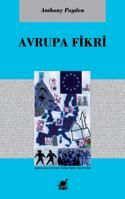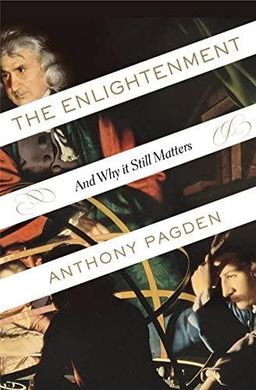Hakkında
John Hopkins Üniversitesi’nde Harry C. Black Tarih Profesörü’dür. Yakın zamana kadar Cambridge Üniversitesi’nde Modern Entelektüel Tarih dersleri verdi. Avrupa Üniversitesi Enstitüsü’nde (Şoransa), Harvard Üniversitesi’nde, Princeton Yüksek Çalışmalar Enstitüsü UNED’te (Madrid) ve Aarhus Avrupa Kültürel İncelemeler Merkezi’nde (Danimarka) çeşitli görevler aldı. Times Literary Supplement, The London Review of Books, The New Republic, The Los Angeles Times, The New York Times, Il Sole 24 Ore (Milan), El Mundo (İspanya), El Pais, (İspanya) ve La Nueva Provincia (Arjantin) dergilerinde sürekli yazılar yayımlamaktadır. Kitaplarından bazıları şunlardır: Lords of all the World: Ideologies of Empire in Spain, Britain and France Lords of all the World: Ideologies of Empire in Spain, Britain and France (1995); La Ilustración y sus enemigos: dos ensayos sobre los origenes de la modernidad (2001); Law, Colonization, Legitimation and the European Background in The Cambridge History of American Law (Cambridge University Press, 2008) ve Worlds at War. The 2,500 year Struggle between East and West (Random House, 2008).
Unvan:
Yazar ve Kaliforniya Üniversitesi'nde siyaset bilimi ve tarih profesörü.
Doğum:
ABD, 27 Mayıs 1945
Okurlar
5 okur okudu.
8 okur okuyacak.
1 okur yarım bıraktı.
Sözler ve Alıntılar
The natural sciences, he argued, which had achieved such astounding successes in the seventeenth century, are based upon one single and unwavering belief: that all the laws of the universe are “necessary and constant” throughout time. As humans are part of this universe, the study of their history, although it is unlikely to uncover laws as certain as those of physics, will at least allow the historian to “predict with great probability the events of the future.”
Condorcet
When, in December 1792, the National Assembly put the king, Louis XVI, on trial as a traitor, Condorcet supported the move, believing, like the Anglo-American radical Tom Paine—now a naturalized French citizen—that it would show the world that kings, too, could be held accountable for their crimes. But because, like all good liberals—like Paine, indeed—he rejected the idea that the state had the right to take human life, he passionately opposed the idea of his execution. This did not win him friends among the revolutionary hardliners, and when in 1793 he voted against the new constitution proposed by the Jacobins, he was branded as a traitor and an enemy of the Revolution.
"Our hopes for the future state of the human species may be summed up in three important points: the elimination of the inequality between nations; progress in equality within the same peoples; and finally the real perfection of mankind. All peoples should one day approach the state of civilization attained by the most enlightened, the most free, and the most free from prejudices, such as are the French and the Anglo-Americans."
Condorcet
İletiler
Henüz kayıt yok
Yorumlar ve İncelemeler
Henüz kayıt yok

